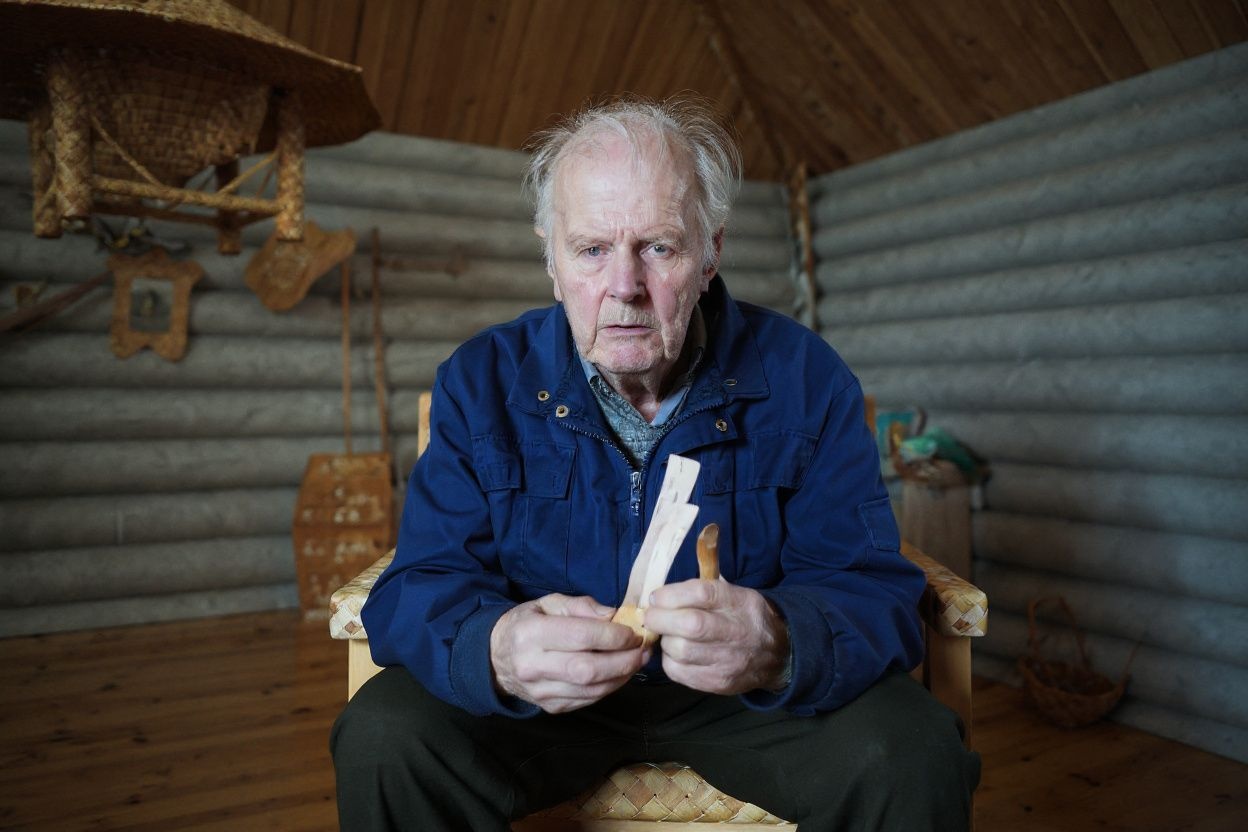
If your New Year plan is to work in a new country, we have good news — working in Finland might be a dream come true sooner than you think.
In late 2023, Finland announced that it faces a labour shortage in 33 occupations across the country, according to the European Labour Authority. For foreigners, this means that it’s prime time to clean up your CV, gather your documents, and start applying for a Finnish work visa.
Finland’s labour shortage problem
With a population of approximately 5.5 million, the working-age population in Finland is expected to decrease due to the increased retirement rate, contributing to the labour scarcity in the country.
For both men and women, the average retirement in the country has increased to 64.50 in 2024 from 64.25 in 2023. While this may sound like a “normal age” to retire, Finland’s retirement age is one of the lowest in the rest of Europe.
In countries such as the Netherlands, Bulgaria, Italy, Greece, and Denmark, the average retirement age is 67, while France has the lowest 62.5 years. However, today in Finland, the average age is 43.8 years old, and the population is expected to decline starting in 2034.
On top of that, Finland has one of the lowest birth rates among the Nordic countries. According to Statistics Finland, the fertility rate is 1.26 per woman in 2023. If the government wants to renew itself, it will need a total fertility rate of 2.1.
 Age is perceived as a significant barrier to employment in Finland, especially for those over 45. The lack of foreign talent is another contributor to the labour shortage in Finland — and it’s something everyone can hop on board with, though not without some effort.
Age is perceived as a significant barrier to employment in Finland, especially for those over 45. The lack of foreign talent is another contributor to the labour shortage in Finland — and it’s something everyone can hop on board with, though not without some effort.
Located between Sweden and Russia, Finland is known to be one of the northernmost areas in the world and has the longest and coldest winters.
While this has not stopped the local population from going about their daily lives, foreign workers have had to put in some extra work to climatise to the weather — like learning it’ll take more than a minute to dress before you head out the door during the height of winter.
Regarding language barriers, many sectors in Finland’s workforce have strict qualifications and language requirements, making it difficult to attract foreign workers.
The language barrier goes beyond the workforce.
While most Finnish people can speak English, the official language at teaching institutions is Finnish or Swedish, making this a major obstacle for international students who don’t speak the language.
However, this Reddit user thinks otherwise: “I was in Helsinki a couple of months ago, and I barely heard Finnish in most places. Even Helsinkiläiset use a lot of English in their day-to-day lives. You’ll be fine language-wise in the capital.”
“From my personal experience, it took me 3 years of studies (evening classes), 4 years to have the courage to speak fluently among my peers, and 5 years to have a total grip on the language. But then again, I didn’t rush myself because I could find jobs in Helsinki just fine with English.”
 Finland has approximately 200,000 reindeer, 1,200 to 2,470 bears, and over 300 wolves. Don’t worry, though — it’s very rare to bump into a bear or wolf.
Finland has approximately 200,000 reindeer, 1,200 to 2,470 bears, and over 300 wolves. Don’t worry, though — it’s very rare to bump into a bear or wolf.
8 reasons why working in Finland is the best New Years resolution
1. Best quality of life
Finland ranks sixth globally for the best quality of life, according to US News & World Report.
Its public healthcare services are free for citizens, unlike the US. Their hospital and specialist services are top quality, ranking them the highest among other European countries.
The country also ranks fourth for being the best place for raising children, proven by its internationally renowned education system, and even more so for early education in particular.
2. Close to nature
While Finland may be colder due to its geographic location, you’ll be surrounded by its breathtaking nature.
With over 40 national parks and more than 80,000 islands off its coast, Finland is a sight to behold with every turn of the corner. Here, outdoor adventurers and nature lovers will find no end to their fun. Better yet, research from the North Carolina State University revealed that being surrounded by nature affects people on the cellular level, slowing ageing overall.
And the news gets better too — 10 of the largest cities in the country have recently committed to concrete targets for halting the loss of biodiversity — so if you’re interested in careers that can help the planet, this is the place to be.

Miina Sillanpää, the first woman in the Finnish Parliament, advocated for women, the elderly, and the disadvantaged. Source: This is Finland
3. Leading country in gender equality
Finland is one of the world’s leading countries in fostering gender equality, dating back to the mid-1800s. It’s even written in the Finnish Constitution: “No one shall be treated differently to others based on gender or any other personal attributes.”
The country was the first to have women members of parliament (MPs). In 1926, a law was passed allowing women to hold public office; the same year, the country had its first woman minister, Miina Sillanpää.
4. Offering permanent residency after a Master’s from a Finnish university
If you’re looking to complete your Master’s abroad, Finland is a great option. The government is planning on offering permanent residency for master’s graduates to provide a working opportunity for international students and to retain talented individuals.
However, there’s a catch.
The permanent residency is only for those who have passed a Finnish or Swedish language exam. But you’ll be eligible for permanent residency if you have lived in Finland uninterrupted for four years with a continuous residence permit.
5. Safest country in the world
According to the Global Peace Index, Finland is the safest country among Nordic and European countries, ranking 13th globally.
The Finnish population are known to be honest. It’s safe that if you lose your wallet, there’s a high chance you’ll be getting it back, and Reader’s Digest’s “Wallet Test” proved it.
That’s not all; Finland is ranked second for the least corrupt country in the world in 2024, as reported by Transparency International.
6. Values work-life balance
Working in Finland means having a work-life balance. The concept is embedded deeply into Finnish society, with 50% of employees working 35-40 hours per week, significantly less than in other countries globally.
Travelling to work isn’t a hassle, as it takes an average of 20 minutes nationally and 30 minutes in the capital region, so you don’t need to worry about getting stuck in traffic or on a crowded train.
Employees are entitled to two days of holiday per month if they have worked for less than a year. If you’ve worked for over a year, you’ll be entitled to 2.5 days a month, which is 30 days of paid holiday annually.
Finnish companies also practice an equal and low-hierarchy working culture. Practising this will decrease the pressure employees often have while at work, and they can easily voice out their concerns and opinions.
7. High-paying salary
If you get a job in Finland, you’ll get one of the highest-paying salaries in the world.
According to CEOWORLD magazine, Finland is ranked 15th on the list of countries with the highest average salaries at US$4,090 (3815.81 euros) per month, beating Hong Kong, Germany, Sweden, and South Korea.
You would need at least 941.60 euros a month to survive in Finland, excluding rent.
8. Happiest country in the world
It’s no secret that Finland is the happiest country in the world.
Well, getting free healthcare, low crime, amazing public transportation, beautiful views, and a low-stress lifestyle is how you’ll find yourself on top of the list.
Additionally, based on research, the level of trust and freedom in its society keeps the Finnish population happy. They’re more likely to trust their neighbours, public officials, and government than any other country, especially the US.
 Medical practitioners and other health professionals are in a high shortage of occupations in Finland due to the ageing population and poor ability to attract skilled individuals.
Medical practitioners and other health professionals are in a high shortage of occupations in Finland due to the ageing population and poor ability to attract skilled individuals.
What jobs are in demand in Finland?
Healthcare sector:
- Home-based personal care workers
- Health care assistants
- Dental assistants and therapists
- Child care workers
- Social work and counselling professionals
- Audiologists and speech therapists
- Dentists
- Nursing professionals
- General and specialist medical practitioners
Technology sector:
- Application programmers
- Web and multimedia developers
- Software developers
Hospitality and service sector:
- Chefs, cooks, and fast food preparers
- Waiters
- Cleaners and helpers in offices, hotels, and other establishments
Engineering sector:
- Telecommunication engineers
- Electrical engineers
- Civil engineers
Construction:
- Building construction labourers
- Construction supervisors
- Metal working machine tool setters and operators
- Sheet metal workers
- Welders and flame cutters
- Heavy truck and lorry drivers
- Mechanical machinery assemblers
- Plumbers and pipe fitters
Others:
- Building caretakers
- Accounting and bookkeeping clerks
- Special needs teachers and early childhood educators
 If you end up working in Finland, you can see the Northern Lights from August to early April.
If you end up working in Finland, you can see the Northern Lights from August to early April.
Ways to start working in Finland
Talent Boost Programme
From 2023 to 2027, the Ministry of Economic Affairs and Employment and the Ministry of Education and Culture are partnering to create a programme encouraging foreign talent to work in Finland.
This programme aims to improve the country’s ability to attract foreign workforce to meet its labour needs.
Resident Permit
If you’re not a citizen of an EU Member State, Iceland, Liechtenstein, Norway, or Switzerland, you must apply for a resident permit to be eligible to work in Finland. You will need your passport or identity card and insurance.
Those working in Finland as a specialist, a start-up entrepreneur, or a company’s management will be able to fast-track their resident permit and receive it within two weeks.
Resident Permit for Seasonal Work
For those looking to work abroad for a short period, Finland offers foreign talent resident permits for seasonal work.
Seasonal work refers to work in agriculture and tourism tied to certain times of the year. The permit can last up to nine months.
However, if you’re a citizen of a visa-free country and plan on working in Finland for season work as a wild berry picker for no more than 90 days and there’s no employment relationship, then you’re not required to apply for a resident permit for season work.










